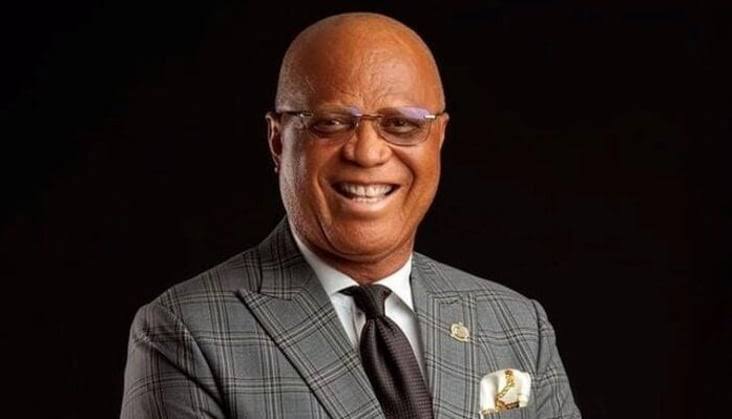The problem with the NGF, however, is the manner in which they go about their business. While on the one hand, the NGA in America is bipartisan and open; our NGF seems to hold their meetings only in the dead of night!
Not a few people are of the opinion that Rivers state governor, Rotimi Amaechi’s current travails are as a result of his activities as Chairman of the Nigeria Governors’ Forum. Some others believe that Nigerians will not have the opportunity to enjoy the dividends of democracy if the activities of the Nigeria Governors Forum (NGF) continue unchecked. In reality, there are two ways to look at this coin, and I hope to explore both today.
Before we go on though, we must make it quite clear that the NGF is not an illegal organisation. The NGF is similar to the National Governors Association in the United States. The NGA serves as a key public policy liaison between the state governments and the federal government of the US. It provides governors and their senior staff members with services that range from representing states on Capitol Hill and at the White House when discussing federal issues to developing policy reports on state programmes and hosting networking seminars for state executive branch officials. The NGA also provides management and technical assistance to both new and incumbent governors.
Now, considering that our Constitution as it currently stands is based on the US Constitution, it only makes sense that we also copy such a useful institution. The problem with the NGF, however, is the manner in which they go about their business. While on the one hand, the NGA in America is bipartisan and open; our NGF seems to hold their meetings only in the dead of night! A lot of governors have also appeared to have abdicated their responsibilities within their states and instead, spend more time in Abuja rather than in their respective states. What they are lobbying for in Abuja is obvious.
Nigeria unfortunately has a deeply rooted patronage system in place when it comes to politics, and the NGF is no different. It has become a powerful, partisan public and lobbying body made up of self-centred individuals. The group are so in love with their position that they see themselves as a law unto themselves. When they’re not philandering and violating their oaths of allegiance to the Nigerian Constitution, they are pushing for the projection of each other’s selfish aims, usually to the detriment of the populace.
Examples abound. When between November of 2009 and February of 2010, our former President Yar’Adua disappeared from public view with no explanation, the NGF, in a lot of cases, actively worked to help in the massive cover-up and public deceit that ensued. Rather than use their growing powers to make sure that the right thing as demanded by our Constitution was done, they (under the leadership of Bukola Saraki of Kwara) actually worked to prevent any moves within the Federal Executive Council to invoke Section 144 of the Nigerian Constitution which would have immediately made current President Jonathan the substantive president.
The nation as a result drifted aimlessly for months. Even after Jonathan did become president, the NGF continuously dogged his tracks, and one of their successes was the fact that they insisted that one of them became the new vice president. Where they crossed the line in my opinion though, was when they rejected (and got what they wanted), the proposal that election petitions be concluded before the swearing in of the “winners”. This kind of chop-I-chop mentality is one of the key things holding us back as a country. We should also be reminded that the governors tried (albeit with limited success) to determine who constituted the President’s Advisory Council.
Fortunately, or unfortunately, depending on which way you chose to look at it, we do need powerful governors. You see, one of the major draw backs of democracy as it is practiced in Nigeria is that things are still too heavily dependent on the centre. Quite unlike the United States whom we are attempting to copy. Taking a drive through different states in the US is always very instructive about unity in diversity. The country is made up of 50 different states, and what applies in the state of New York is almost definitely not what applies next door in Delaware.
The federal government in the US controls quite a lot of the important apparatus that goes into making the union, but the finer day-to-day running of people’s lives is left to the state governments. In the US, each state has independence of sorts. They are strong enough to stand on their own, but not strong enough to challenge the rest of the nation to a fight. In Nigeria, the states all have to depend on the centre for monthly hand-outs and this is probably the biggest lesson that we can draw from the sports festivals – Nigeria 2009 and Nigeria 99.
In Nigeria 99, the planning was done entirely at the level of the Local Organising Committee, which was an organ of the federal government, and that competition is on record as being probably the worst ever FIFA competition. It led to loads of changes in the way FIFA ‘helps’ host countries. In Nigeria 2009, when it became evident that the LOC was not interested in working, state governments in some centres stepped in, and the competition ended up being more successful in some areas than it was in others.
This disparity in organisational success shows us that for Nigeria to make real progress, there has to be competition among the constituent parts of the country; a return if you will, to the arrangement that obtained in our post-independence democracy where the regions were in direct competition with one another, and each was allowed to develop at its own pace. The federal government dictates what is happening, and at which pace a state should develop; which is a self defeating situation because in our real life situation, life in Zamfara is idyllic, while life in Lagos is fast pace. Kwara and Akwa Ibom want to generate their own power, but federal orders essentially mean that whatever power they generate cannot serve their people.
The harsh reality is this: the NGF is an entity that is needed to break this stranglehold of the centre. How they are going about it right now is not the way to do it, but as the saying goes, “he who pays the piper dictates the tune”, and as long as the states have to continually depend on Abuja for monthly handouts, we will keep seeing the NGF attempting to punch its weight in the centre, rather than at the states where they ought to belong.
————————-
Op-ed pieces and contributions are the opinions of the writers only and do not represent the opinions of Y!/YNaija.















